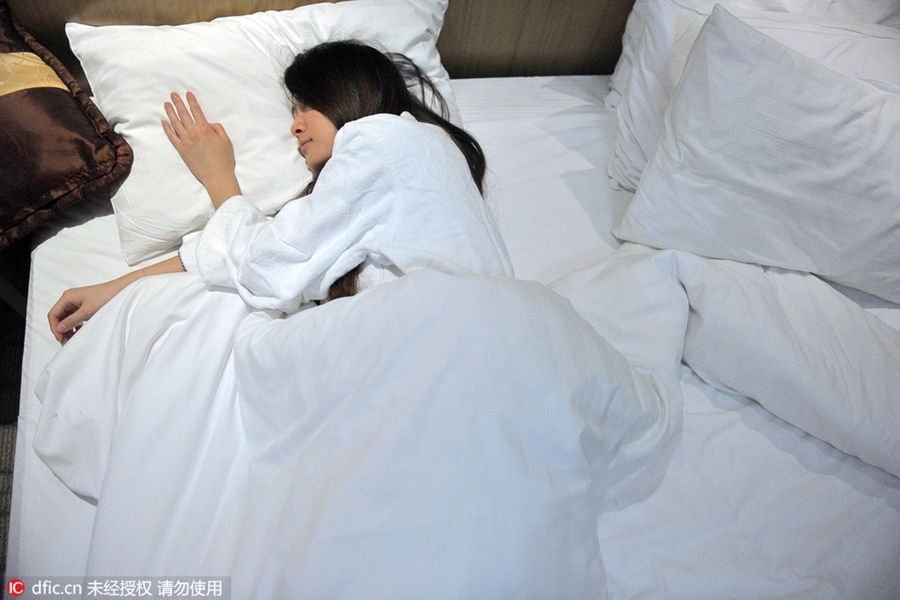China's 'sleep testers' search hotels for a good night's rest
Updated: 2016-03-22 11:13
(Xinhua)
 |
|
Zhang Xinyan, a post-doctorate student born in the 1990s from Nankai University in Tianjin, works parttime as a sleep tester. She tries on a hotel in Beijing, Dec 13, 2013. [Photo/IC] |
BEIJING - Wu Jun has always been a light sleeper. But the part-time "sleep tester" has turned his sensitivity to light and noise, once a curse, into an opportunity to travel and make money.
"Sleep is far more than just a bed. Hotel doors, windows and curtains are all important factors that influence sleep quality," said Wu, 37, who reviews hotels for Chinese travel website Qunar.
The World Sleep Day was observed in China on Monday. According to a survey conducted last year by the China Sleep Research Society, 38.2 percent of urban adults have trouble sleeping, much higher than the world average of 27 percent.
China's growing middle class is increasingly conscious about health and quality of life. For the country's upwardly mobile travelers, picking a hotel is no longer just about price.
Wu, who is based in Shanghai, is among some 10,000 part-time sleep testers recruited by Qunar nationwide since 2010.
The job requires testers to find hotels, stay for at least one night, and review them online by uploading photos and leaving comments about the quality of guest rooms, amenities and transportation.
"I write about the brand of bed sheets, quilt materials, air conditioner noise and light sources," he said, adding that a bright digital clock beside his pillow is enough to keep him from falling asleep.
"For an airport hotel or a hotel next to a busy street, double-pane windows are a must for keeping out noise, and curtains are also important to make the room dark as night during the daytime," he said.
Wu has loved hotels ever since his parents took him on frequent trips as a boy. After graduating from Shanghai University of Finance and Economics as a public management major, he found a marketing job in a hotel.